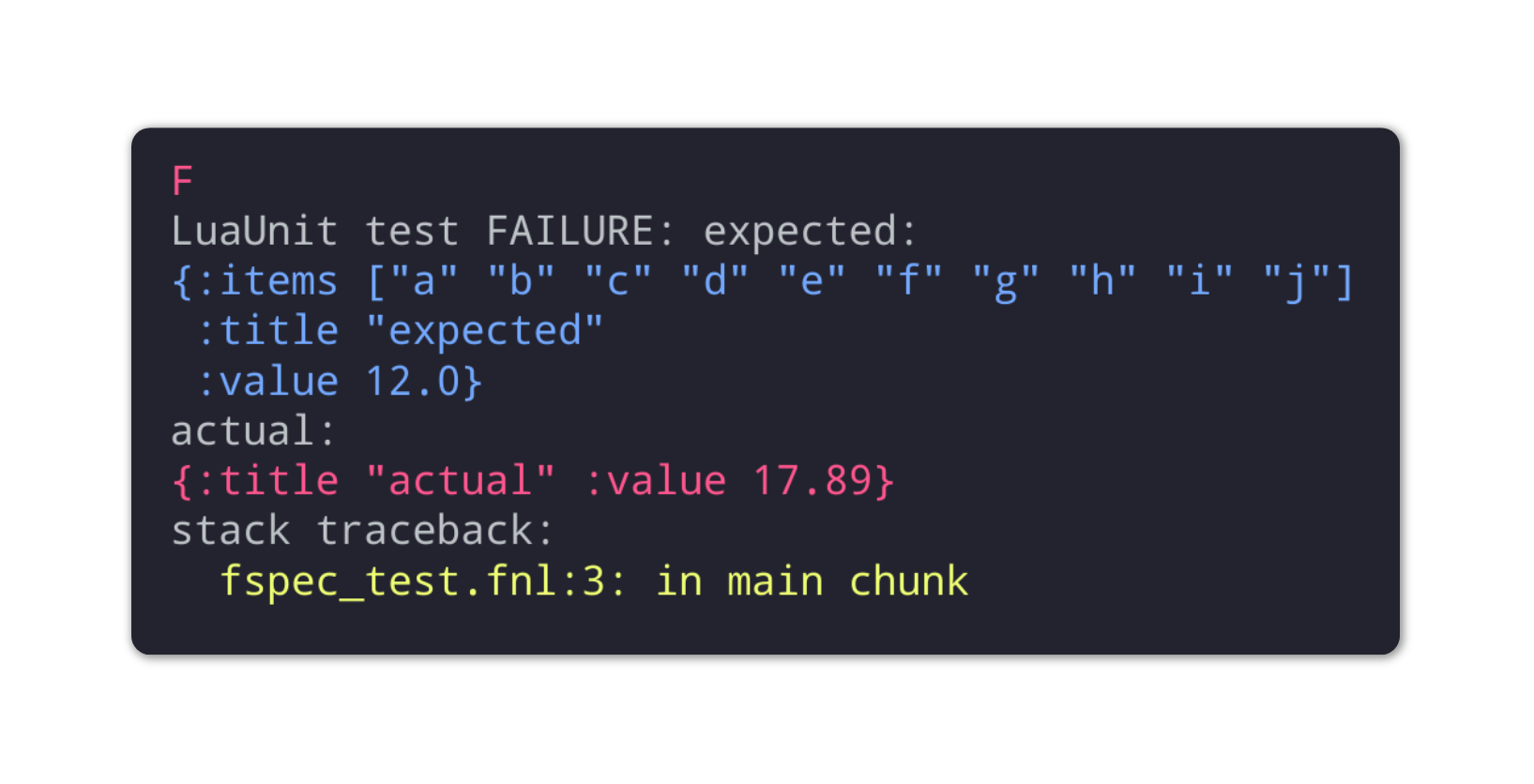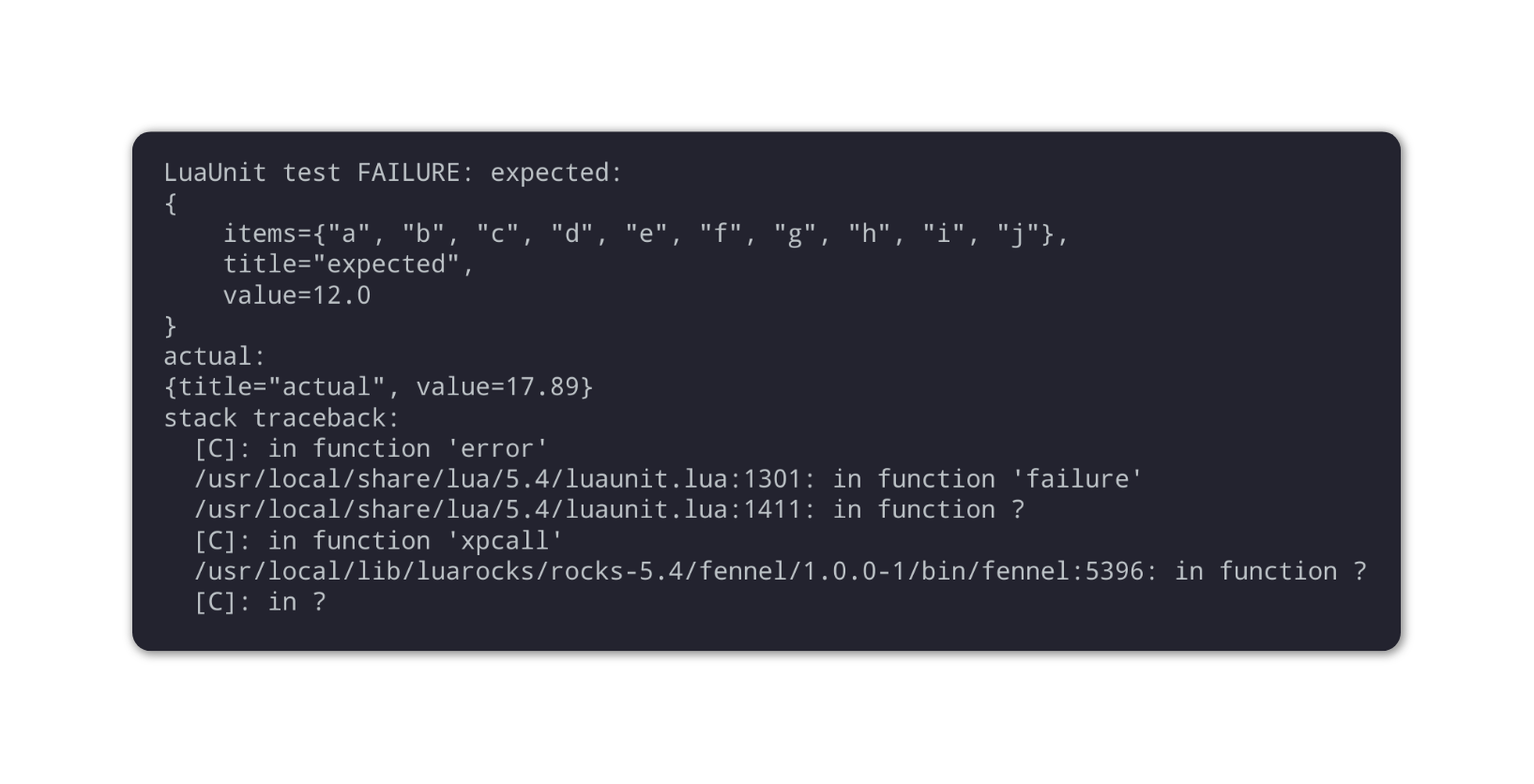A wrapper that tweaks LuaUnit for a more pleasant test writing experience with Fennel.
To install through fnx, add to your .fnx.fnl:
:fspec {:fennel/fnx {:git/github "gbaptista/fspec"}}
; Example:
{:name "my-project"
:version "0.0.1"
:dependencies {
:fspec {:fennel/fnx {:git/github "gbaptista/fspec"}}}}And install:
fnx dep install
Create a some_test.fnl file:
(local t (require :fspec))
(t.eq "actual" "expected")
(t.is-number "1.2")
(t.run!)Run with:
fnx some_test.fnlTo run all _test.fnl tests, create a test.fnl file with:
(local t (require :fspec))
(t.run-all! "./")And run:
fnx test.fnlTo use a different pattern, like _spec, use:
(t.run-all! "./" "_spec")To get a complete stack trace, use the --verbose option:
fnx test.fnl --verboseCheck the dsl.fnl file for a list of all assertions available.
With LuaUnit you would write a test in Fennel like this:
(local luaunit (require :luaunit))
(fn testSomething []
(luaunit.assertEquals
{:title "actual" :value 17.89 }
{:title "expected" :value 12.0
:items [
"a" "b" "c" "d" "e"
"f" "g" "h" "i" "j"]}))
(os.exit (luaunit.LuaUnit.run))With fspec you would write the same test as:
(local t (require :fspec))
(t.eq
{:title "actual" :value 17.89 }
{:title "expected" :value 12.0
:items [
"a" "b" "c" "d" "e"
"f" "g" "h" "i" "j"]})
(t.run!)Which would result in:

